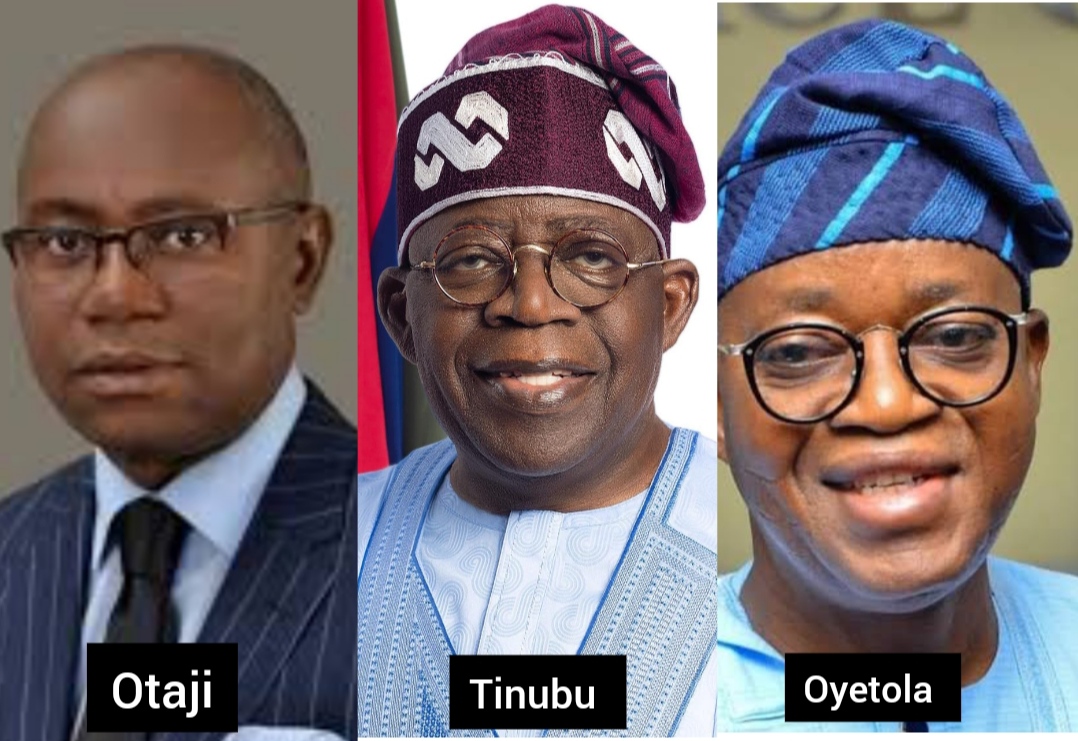PERISCOPE
Optimizing Ship To Shore Efficiency In Nigeria
One of the notable issues addressed at the just concluded 2017 Oil Trading and Logistics Africa (OTL) Downstream Week was “optimizing ship to shore efficiency” in the continent. Ship to shore transfer simply refers to the transfer of ship’s cargo, dry or wet cargo, between vessels positioned alongside a shore facility.
Although this system seems simple and less complicated, ship to shore transfer has become a business concern especially to guard against avoidable delays which may result in extra operating cost, non-productive time, high demurrage payments and ultimate product scarcity.
Globally, customers seek consistent quality services that are quick, reliable and flexible and also at the lowest price. These customers’ demands are some of the key elements that make efficient ship to shore transfer sacrosanct to every maritime nation. However, ship to shore operational efficiency should be driven alongside compliance with regulations.
During her paper on ship to shore transfer, the Managing Director of Nigerian Ports Authority (NPA) Ms. Hadiza Bala-Usman highlighted the following factors to be considered right from the concept and planning of ship’s arrival at the intended terminal, they are; ship arrival considerations, ship to ship operations, ship to shore planning, administrative planning, operational planning and communications.
Usman, who was represented by the General Manager in the Managing Director’s office, Capt. Ihenacho Ebubeogu noted that time and costs are typically, the most significant drivers of business performance, “benchmarking these factors can lead us to significant operational improvements in efficiency and performance. The key task is to map out the minimum process required to deliver the product to the customer and this can be achieved by accessing performance, setting targets, and following through on plans and initiatives focusing on improving the: cost of waste (error), cost of conformance (prevention) and minimum process (added value)”
He noted that, depending on the shore system characteristics, “fuel savings between 5% and 15% can be achieved in optimization operations. At the end of it all ship owners and masters will rejoice having minimized both fuel consumption and vessel time in port”.
On the issue of security for ship-to-ship (STS) transfer, The Chief of the Naval Staff, Vice Admiral Ibok Ete-Ibas stressed that the role of the Navy anywhere in the world was basically to ensure that the security of the nation wasn’t breached from the maritime areas.
However, the Vice Admiral who was represented by Commodore Makinde described the situation in Nigeria as a critical situation which demanded special attention and approach.
“All through most of my training in Australia I never boarded a merchant vessel but what is happening in Nigeria demands that we act otherwise there wouldn’t be room to do business within the nation’s maritime sector. On the issue of clearance, it is part of the statutory roles of the Navy to do anti-bunkering to assist the Customs and now we are creating a portal to enable people submit applications that can be approved immediately without waiting for someone from the headquarters. The Chief of Naval Staff is championing the establishment of this portal” he said.
On his part, the Director General of the Nigerian Maritime Administration and Safety Agency (NIMASA) Dr. Dakuku Peterside posited that security challenges weren’t the major reasons for STS to be done in neighbouring countries when the cargoes were destined to Nigeria.
Peterside argued that the Nigerian Navy and NIMASA have put in tremendous efforts to ensure that the nation’s maritime waters were safe, however, he lamented that the shallow draft of Nigerian ports meant that some big ships couldn’t come to the nation’s ports.
“Look at the draft of Nigerian ports; most of them are river ports. When you do STS in Lome, it is because of the draft and that is the major challenge before the security problems. For ships coming to our ports, there would be no need to do STS if we have the desired draft. However, I’m aware that NPA is at the fore-front of developing a port masterplan even as talks have started about deepening the various channels.”
“The other issue is security but NIMASA and the Nigerian Navy are working assiduously. We are changing our architecture and if we begin to implement our maritime security architecture, I believe that these security challenges would be resolved”, Peterside said.
Earlier in his welcome address, the Chairman, OTL Africa Downstream, Mr. Emeka Akabogu noted that policy development and implementation have not kept pace with the urgency of industry needs and the appetite of market operators in Nigeria
“Here in Nigeria, recent market tendencies have shown appetite for some categories of investment in the downstream value chain. There have been considerable investments in retail outlet development, marine logistics platforms and storage facilities across the country, while several refinery projects that aim to balance the discrepancy caused by inadequate refining capacity on the continent are currently underway. Other emerging developments, issues bordering on regulation of the industry and independence of the regulators themselves have also received the attention of stakeholders. Nonetheless across the continent, there is no doubt that there is huge potential which is now poised for realization” he said.
He maintained that the African market remains one of the highest growth regions in the world with consumption witnessing year-on-year increase, noting that operators within the continent’s key regions have to realize this be keen on exploring all opportunities.
However, he added that the downstream sector is all about competition.
“Competition is about profile, value, service delivery and branding. These are all the essence of OTL, as has been realized by many who have benefited from this event over the years.
“The theme for this year’s event is “Downstream – Renewed Opportunities”. In view of an increasing focus by African countries on opening petroleum markets to price and value competition, the theme will see discussions during the week focused on the range of emerging opportunities inherent in the downstream value-chain which have hitherto witnessed sub-optimal focus” he added.
Copyright MMS Plus.
All rights reserved. This material, and other digital content on this website, may not be reproduced, published, broadcast, rewritten or redistributed in whole or in part without prior express written permission from KINGS COMMUNICATIONS LIMITED
All rights reserved. This material, and other digital content on this website, may not be reproduced, published, broadcast, rewritten or redistributed in whole or in part without prior express written permission from KINGS COMMUNICATIONS LIMITED






